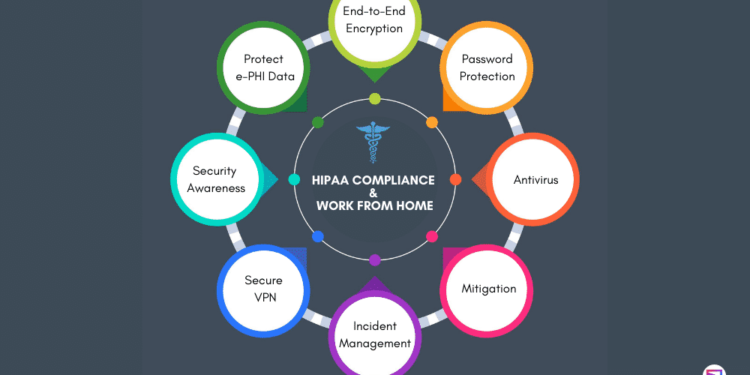HIPAA Compliance and Data Security in Virtual Healthcare Staffing

As the healthcare industry continues to embrace remote work models, virtual healthcare staffing has emerged as a powerful solution for improving efficiency, reducing operational costs, and filling critical staffing gaps. However, with this shift comes a heightened responsibility to protect patient data and maintain HIPAA compliance—especially when sensitive information is being handled outside of traditional clinical environments.
The Rise of Virtual Healthcare Staffing
The demand for virtual medical staff—including remote medical billers, coders, front-desk support, and care coordinators—has grown rapidly in recent years. Healthcare providers are turning to virtual healthcare staffing services to access a wider talent pool, improve patient engagement, and scale operations more flexibly. But as virtual teams become more embedded in core operations, the need for strict data security protocols becomes critical.
Why HIPAA Compliance Matters in Remote Settings
The Health Insurance Portability and Accountability Act (HIPAA) sets the standard for protecting sensitive patient data. Healthcare providers and their third-party vendors must ensure that all electronic protected health information (ePHI) is handled securely—regardless of where employees are located.
In virtual healthcare staffing, this means that remote healthcare professionals must follow the same rigorous data protection practices as on-site teams. Without the right safeguards, even a small breach can result in significant legal consequences, loss of patient trust, and damage to an organization’s reputation.
Key Data Security Challenges in Virtual Staffing
Working with remote staff introduces several data security and compliance challenges, including:
- Unauthorized access to ePHI on personal or unsecured devices
- Insecure communication channels such as email or messaging apps
- Insufficient training on HIPAA protocols for remote team members
- Lack of endpoint security or data encryption measures
Addressing these risks is not optional—it’s a foundational requirement for any healthcare provider leveraging virtual support.
How to Ensure HIPAA Compliance in Virtual Healthcare Staffing
Healthcare organizations and staffing partners must implement a multi-layered security approach to maintain HIPAA compliance. Key steps include:
- Signed Business Associate Agreements (BAAs) with all third-party virtual staffing providers
- Training and certification for virtual staff on HIPAA best practices
- Use of secure, encrypted communication tools for sharing patient data
- Controlled access to EHR systems, with strict user permissions
- Routine audits and compliance checks to identify and mitigate potential risks
Partnering with a reputable virtual healthcare staffing company that prioritizes HIPAA compliance is essential for ensuring peace of mind.
Choosing the Right Virtual Healthcare Staffing Partner
When selecting a virtual staffing provider, healthcare organizations should look for a partner that demonstrates:
- Deep understanding of healthcare workflows and privacy regulations
- Proven HIPAA compliance protocols and security infrastructure
- Transparent policies around staff training, background checks, and performance monitoring
- Scalability and flexibility to support evolving staffing needs
Ultimately, HIPAA compliance and data security should not be afterthoughts—they should be built into the foundation of every virtual staffing engagement.
In conclusion, the future of healthcare is undeniably digital, and virtual healthcare staffing is playing a vital role in this transformation. However, protecting patient data must remain a top priority. By choosing secure platforms, investing in staff training, and working with experienced partners, healthcare providers can confidently navigate the virtual landscape while maintaining full HIPAA compliance and safeguarding sensitive information.






